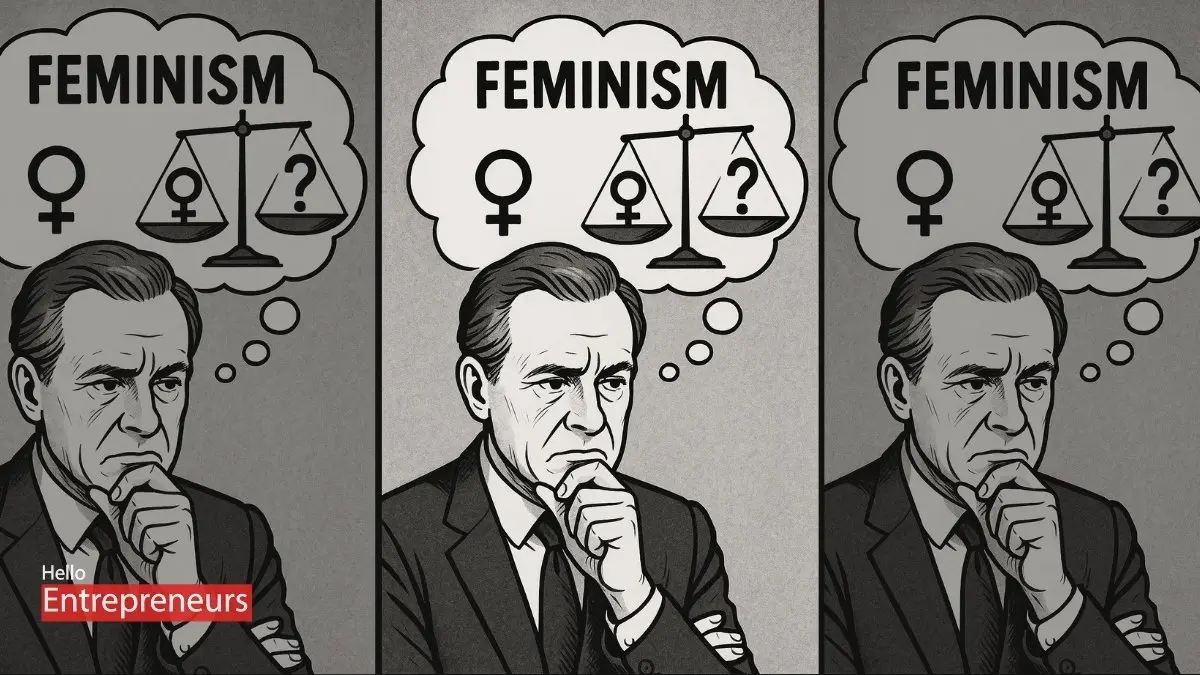5 Hard Truths Redefining Feminism: Not Through a Mirror, But a Telescope of Discomfort

Surat: The dictionary, in its courteous and cultivated wisdom, defines feminism as “the advocacy of equal rights based on the equality of the sexes.” That’s a worthy definition, but one thinker wasn’t buying the whole package. Equal rights? Yes. Equality of the sexes? Not so much.
To him, that line sounded like a paradox encased in a slogan.
Men and women, he maintained, aren’t “equal” in the cookie-cutter, cut-and-paste manner that pervades corporate HR brochures. Women are brilliant, complex beings—emotional, expressive, with an EQ that renders most men’s tentative efforts akin to a half-finished Sudoku puzzle. And men? Yeah, they exist too. Present. Bemused. Often boisterous. Sometimes handy.
He didn’t think feminism was about trying to be what a man might be. Because, honestly, that’s a pretty low ceiling. Feminism—actual feminism—should be about allowing women to be precisely who they want to be, no point of comparison required. Telling women to pursue male achievements as a seal of approval? That’s like giving a chef a microwave guide and calling it culinary school. Or better still, telling a physicist to “keep up” with the monkey bars.
He wasn’t performing a performative speech for social brownie points, either. No manipulation of emotions, no feminist karaoke evening. He knew his gender had a historic (and current) track record for not shutting up long enough to ever truly listen. That’s what decades of male-dominated discourse amounted to—loud on logic, light on empathy.
So rather than lecturing women on what they “should” desire, he posed the more provocative question: What if men ceased to regard feminism as a mirror and began to regard it as a telescope? What if they reversed the lens on themselves?
Because as a woman once advised him—wisely, perhaps wearily—”If you want to be a good feminist, don’t just pay attention to how you treat women. Begin with how you look at yourself as a man.”
Cue existential panic in a neatly folded shirt.
Here’s the thing—80% of traditional masculinity, she explained, is pure rubbish. That performative toughness, the emotional constipation, the “bro-code” that’s just avoidance therapy in another guise? That’s not a strength. That’s branding.
Let’s take a quick data detour:
- The pressure to be traditional masculine is correlated with increased rates of depression, drug and alcohol abuse, and suicide among men, according to the American Psychological Association.
- A report by UN Women estimates that 73% of women across the world have been subjected to online or offline abuse, many of which are directly linked to deep-seated ideas of male domination or “protective ownership.
- The World Economic Forum’s 2024 Gender Gap Report continues to leave economic participation and opportunity for women below parity, after decades of trying.
Perhaps feminism isn’t the enemy after all. Maybe it’s the life raft that men didn’t even realise they needed. Not to be less man, but to be more human.
It’s not about emasculation—it’s about evolving. About realizing that strength isn’t volume, and vulnerability isn’t weakness. That silence isn’t always discomfort—it can be respect.
So the contemporary man, attempting to do feminism “correctly,” does not have to practice catchphrases or compose incisive Twitter threads on “standing with women.” He simply has to ask himself the question that penetrates further than any campaign might:
What would I be like if no one were observing?
That’s where feminism resides—not in the thunderous applause, but in the gentle, day-by-day deconstruction of ego. In understanding that allowing women to be themselves isn’t a kindness. It’s a long-overdue necessity.
And if that’s difficult to swallow, maybe it’s time men cease asking women to defend feminism—and begin reconstructing masculinity.
Also Read: Always a Muslim? The Grief of Generalizing 2.2 Billion People
<p>The post 5 Hard Truths Redefining Feminism: Not Through a Mirror, But a Telescope of Discomfort first appeared on Hello Entrepreneurs.</p>


























